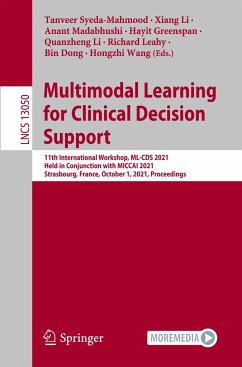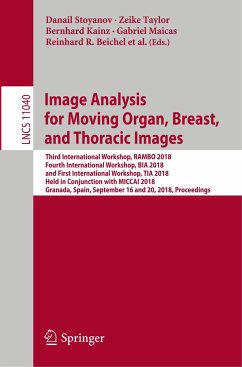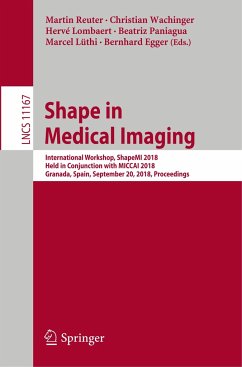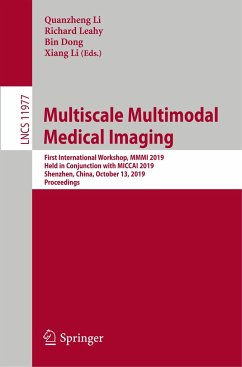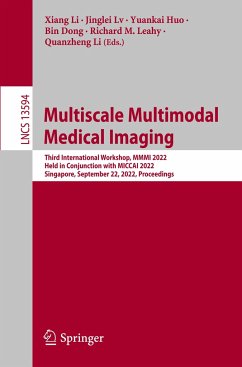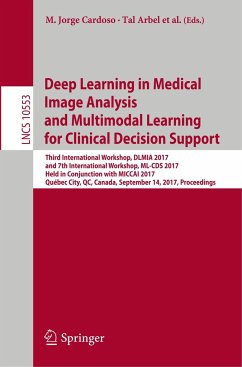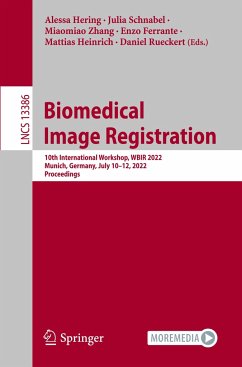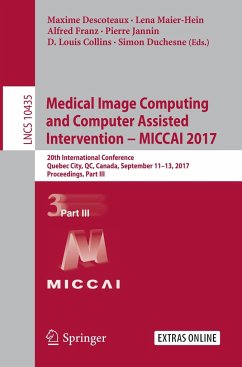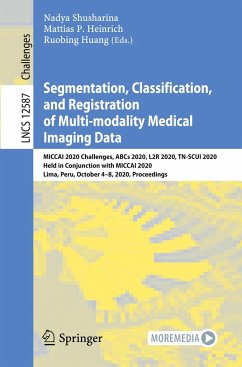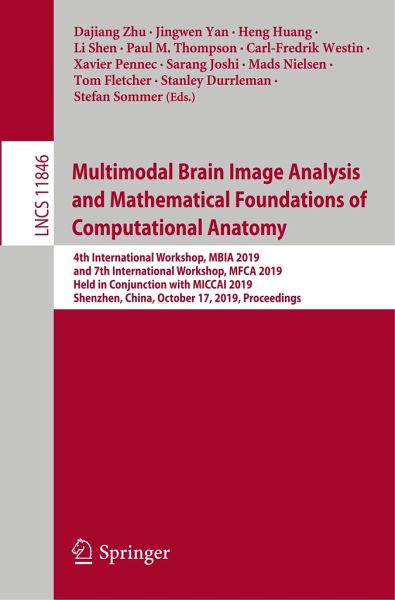
Multimodal Brain Image Analysis and Mathematical Foundations of Computational Anatomy
4th International Workshop, MBIA 2019, and 7th International Workshop, MFCA 2019, Held in Conjunction with MICCAI 2019, Shenzhen, China, October 17, 2019, Proceedings
Herausgegeben: Zhu, Dajiang; Yan, Jingwen; Huang, Heng; Shen, Li; Thompson, Paul M.; Westin, Carl-Fredrik; Pennec, Xavier; Joshi, Sarang; Nielsen, Mads; Fletcher, Tom; Durrleman, Stanley; Sommer, Stefan

PAYBACK Punkte
19 °P sammeln!
This book constitutes the refereed joint proceedings of the 4th International Workshop on Multimodal Brain Image Analysis, MBAI 2019, and the 7th International Workshop on Mathematical Foundations of Computational Anatomy, MFCA 2019, held in conjunction with the 22nd International Conference on Medical Imaging and Computer-Assisted Intervention, MICCAI 2019, in Shenzhen, China, in October 2019.The 16 full papers presented at MBAI 2019 and the 7 full papers presented at MFCA 2019 were carefully reviewed and selected.The MBAI papers intend to move forward the state of the art in multimodal brain...
This book constitutes the refereed joint proceedings of the 4th International Workshop on Multimodal Brain Image Analysis, MBAI 2019, and the 7th International Workshop on Mathematical Foundations of Computational Anatomy, MFCA 2019, held in conjunction with the 22nd International Conference on Medical Imaging and Computer-Assisted Intervention, MICCAI 2019, in Shenzhen, China, in October 2019.
The 16 full papers presented at MBAI 2019 and the 7 full papers presented at MFCA 2019 were carefully reviewed and selected.
The MBAI papers intend to move forward the state of the art in multimodal brain image analysis, in terms of analysis methodologies, algorithms, software systems, validation approaches, benchmark datasets, neuroscience, and clinical applications.
The MFCA papers are devoted to statistical and geometrical methods for modeling the variability of biological shapes. The goal is to foster the interactions between the mathematical community around shapes and the MICCAI community around computational anatomy applications.
The 16 full papers presented at MBAI 2019 and the 7 full papers presented at MFCA 2019 were carefully reviewed and selected.
The MBAI papers intend to move forward the state of the art in multimodal brain image analysis, in terms of analysis methodologies, algorithms, software systems, validation approaches, benchmark datasets, neuroscience, and clinical applications.
The MFCA papers are devoted to statistical and geometrical methods for modeling the variability of biological shapes. The goal is to foster the interactions between the mathematical community around shapes and the MICCAI community around computational anatomy applications.





